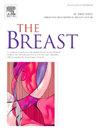Navigating discrepancies: The assessment of residual lymphovascular invasion in breast carcinoma after neoadjuvant treatment
IF 7.9
2区 医学
Q1 OBSTETRICS & GYNECOLOGY
引用次数: 0
Abstract
The assessment of residual lymphovascular invasion (LVI) in breast cancer patients undergoing neoadjuvant therapy may be a critical factor influencing prognosis and treatment decisions. However, there is a notable discrepancy between the RCB, UICC/AJCC, and ICCR guidelines regarding how LVI should be evaluated and reported in this context. ICCR recommends including LVI in the invasive tumor size for neoadjuvant treated patients with only residual LVI affecting the Residual Cancer Burden (RCB) score. AJCC suggests that LVI should not be evaluated as invasive cancer. However, they do not recommend that such cases are considered as complete response. The RCB method does not address the LVI question at all. This editorial aims to explore the implications of these differing recommendations, highlighting the challenges in clinical practice. Even though there is limited evidence in the literature on this subject, leaving this discrepancy unaddressed leads to high variability in the staging of neoadjuvant-treated breast cancer patients among pathologists. This, in turn, may cause confusion in the clinical decision-making for these patients. The recommendation of the Swedish Breast Pathology Expert Group (KVAST breast) based on current evidence, is to report LVI as a separate prognostic biomarker in neoadjuvant setting and reporting it separately from the RCB treatment response criteria. For breast cancer patients with only LVI as residual disease in the breast without any lymph node metastasis after NACT, the Swedish Breast Pathology Expert Group recommends the following staging: RCB-0, pPR, ypT0, ypN0, L1.
导航差异:乳腺癌新辅助治疗后残存淋巴血管浸润的评估
乳腺癌患者接受新辅助治疗后残存淋巴血管浸润(LVI)的评估可能是影响预后和治疗决策的关键因素。然而,在这种情况下,RCB、UICC/AJCC和ICCR关于如何评估和报告LVI的指导方针之间存在显著差异。ICCR建议,对于仅残留LVI影响残余癌症负担(RCB)评分的新辅助治疗患者,将LVI纳入浸润性肿瘤大小。AJCC建议LVI不应被评估为侵袭性癌症。然而,他们不建议将此类病例视为完全缓解。RCB方法根本没有解决LVI问题。这篇社论旨在探讨这些不同建议的含义,强调临床实践中的挑战。尽管关于这一主题的文献证据有限,但未解决这一差异导致病理学家对新佐剂治疗的乳腺癌患者的分期存在很大差异。反过来,这可能会导致这些患者的临床决策混乱。瑞典乳腺病理专家组(KVAST Breast)基于目前的证据,建议将LVI作为新辅助治疗中单独的预后生物标志物,并将其与RCB治疗反应标准分开报告。对于NACT术后仅LVI为乳腺残留病变而无淋巴结转移的乳腺癌患者,瑞典乳腺病理专家组推荐以下分期:RCB-0、pPR、ypT0、ypN0、L1。
本文章由计算机程序翻译,如有差异,请以英文原文为准。
求助全文
约1分钟内获得全文
求助全文
来源期刊

Breast
医学-妇产科学
CiteScore
8.70
自引率
2.60%
发文量
165
审稿时长
59 days
期刊介绍:
The Breast is an international, multidisciplinary journal for researchers and clinicians, which focuses on translational and clinical research for the advancement of breast cancer prevention, diagnosis and treatment of all stages.
 求助内容:
求助内容: 应助结果提醒方式:
应助结果提醒方式:


